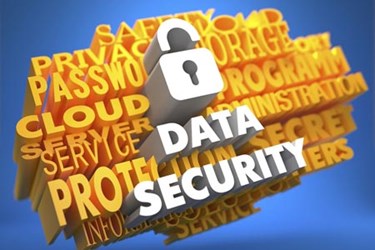How To Help Small Businesses Protect Data
By Rick Delgado, contributing writer

You would think cyber criminals could get more out of hacking into the mainframe of a large organization but, these days, small businesses are the ones being targeted. It’s no longer the goal just to show off — cyber criminals can get valuable data such as company assets and customer credit card numbers from a small business’s computer making data security more important than ever.
In 2015, 74 percent of small companies in the U.K. experienced a data breach according to a Government Security Breaches Survey. Symantec, a cyber security firm, found more than half of spear phishing attacks using fake emails targeted small- and medium-sized companies. Ransomware, hacking the company’s network, Denial of Service attacks, human error, or a criminal posing as a CEO were the most common types of breaches.
Can A Small Business Protect Its Data?
Data security has become a front-and-center issue taking many forms. Small businesses can be just as successful at drawing customers as thwarting cyber-attacks. Here are a few ways you can secure data, computers, and networks to stay safe.
- Set Computer/Network Access Levels
Usernames do more than give people a digital identity, they also let you set access levels based on that employee’s profile. You can prevent unauthorized changes and see exactly what that person has access to. Employees have the ability to use passwords and protect their own computers. Everyone working for you should be informed on how to use the Internet safely, including social media, and how to communicate the company’s mission without giving away trade secrets. This is especially important when using hybrid cloud computing. - Two-Factor Authentication
Passwords are not always enough. Try two-factor authentication, which includes a password and something else such as a numeric code sent to the user via text message. Also be attentive to administrative passwords. These can be another access path, especially for Wi-Fi networks. Be sure to address access and authentication on all fronts. - Data Encryption
Use the strongest available encryption standards to secure the network. Data encryption is a step that should not be skipped. Secure Sockets Layer (SSL) takes it to a new level by combining symmetric key encryption with public key encryption. If a hacker is trying to eavesdrop, then this will likely thwart their attempt. - Secure Your Wireless Network
Make sure there is a plan to secure the network in specific ways. In addition to SSL, standard data encryption, and passwords, know the types of firewalls, information that needs to be protected, and how you are going to do so. You can even hide a Wi-Fi network by preventing the Service Set Identifier from being broadcasted and by password protecting the router. - Be Proactive
Security policies should be devised so it’s known who and how they should handle sensitive data and cyber security in your company. List the consequences should someone violate cybersecurity policies. There should also be a game plan for addressing a potential cybersecurity issue and how to resolve it. - Use Only Trusted Cloud Products
There is a flood of promise-driven, affordable cloud solutions on the market. Most small businesses don’t have a big IT budget. Before hiring a cloud provider, explore their expertise, transparency, consistency, and pricing. Also check on aspects of their solution such as integration, network ownership, and reliability. - Keep Refining Your Data Security Plan
Staff training, and being current on the latest antivirus/malware software and types of cyber-attacks, can help your business be prepared and stay afloat in a turbulent time. Backing up important data is still relevant. It’s good practice as an extra security layer. Policies on mobile device use are important as well.
Include as many of these practices as possible and keep your data security plan flexible. This is important in a world where the threats are always changing and hackers are always trying to outsmart their victims. The more prepared your small business is, the less likely the chances it will succumb to major cybersecurity threats.
